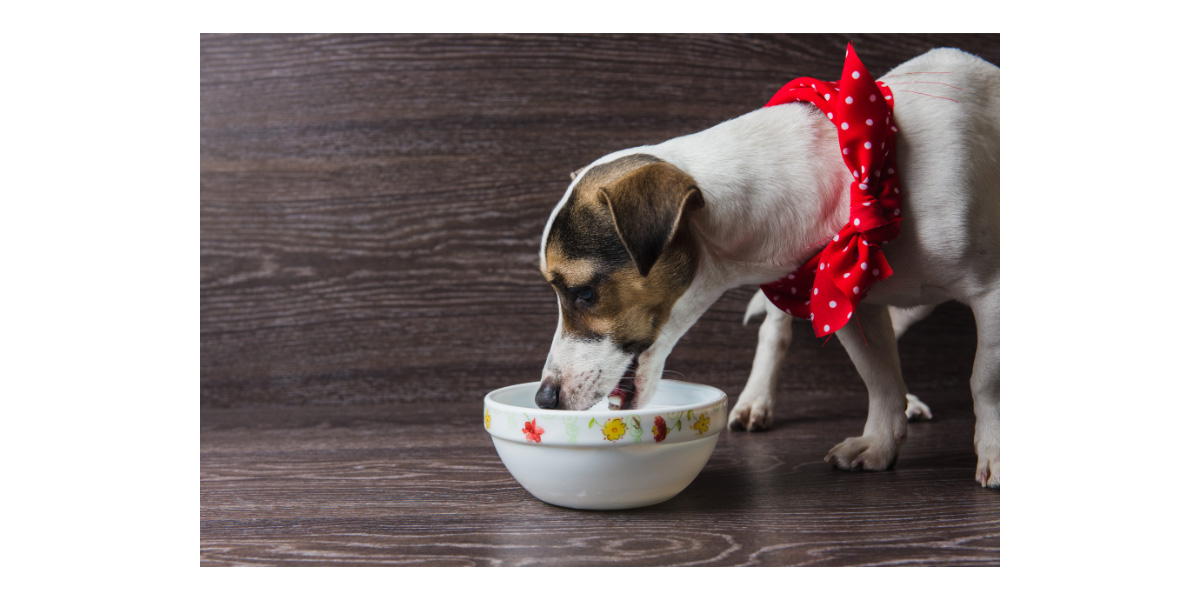
Save 35% with AutoShipUse code SAVE35 (Up to $20 max. Exclusions apply)

SAVE AN EXTRA $5 - $20 OFFUse code PETS in cart (Exclusions apply)

When it comes to your puppy’s first year, the days are long but the weeks are short. Over the next few months, a high quality, specially formulated diet can support everything from their bone and muscle development to their brain, vision, and immune system health.
In celebration of National Puppy Day on March 23rd, learn how to choose the best puppy food for your new addition, when to feed your puppy, and what else you can do to make the most of each meal.
Most dog foods are formulated to meet standards set by the the Association of American Feed Control Officials (AAFCO). AAFCO has specific nutritional guidelines for both large breed puppies and their small and medium breed counterparts.
Puppy food is higher in calories from protein and fat than adult dog food. Puppies need this extra nutritional support to fuel the growth of soft tissues like muscles, tendons, organs, and more. Fat supports their higher caloric needs and aids the absorption of fat-soluble vitamins.
All life stages dog food is formulated to meet the higher caloric needs of a puppy, but is also appropriate for the typical adult dog. It’s convenient for multi-dog households and can continue to be fed after your puppy is fully grown.
Large breed puppy food is specially formulated for puppies that are expected to grow to over 70 pounds when they are fully grown. This is because large and giant breed puppies can grow too rapidly, potentially leading to painful, lifelong skeletal deformities. Large breed puppy food that meets AAFCO standards has less calcium and fat than other puppy foods to help ensure your puppy grows at a healthy rate.
There are dozens of options to choose from when it comes to feeding your dog. Every dog is different. You’ll want to find a food that your dog likes, meets their nutritional needs, and fits your budget.
Dry kibble is convenient and easy to feed, and it can be soaked in warm water if your puppy prefers it that way. Adding water can aid digestibility and hydration, just be sure to refrigerate or throw out any uneaten moistened food.
Canned food is usually high in protein and lower in carbohydrates than dry kibble. It’s more hydrating and often highly palatable even for picky puppies, though it is usually not as affordable, especially for large breeds. You can feed a complete and balanced canned food on its own or mix it with dry food.
Fresh foods like dehydrated, freeze-dried, frozen raw, and frozen cooked dog foods can offer many health benefits for dogs, but should still be formulated to meet your puppy’s specific nutritional needs. To ensure your puppy’s diet is complete and balanced, you can add fresh food as a topper, treat, or mix-in, just make sure it does not exceed 15% of their diet.
Some puppy foods are grain-free, meaning they do not contain any grains like corn, wheat, oats, or rice. Instead, they typically contain other carbohydrate sources like peas, lentils, or potatoes.
Unless your puppy has a known food intolerance affected by grain ingredients, there is no need to feed a grain-free puppy food. Ultimately, you can choose a grain-free or grain-inclusive food that your puppy seems to like and that they seem to do well on.
While grain-free dog foods have been suspected to be linked to the development of dilated cardiomyopathy in some dogs, the FDA has not found any solid evidence that this is the case. If your puppy is a purebred or a mixed breed made up of susceptible breeds like the Golden Retriever, Doberman Pinscher, Boxer, or Cocker Spaniel, you may still consider avoiding grain-free foods to be on the safe side.
Omega-3 fatty acids are not considered an essential nutrient according to AAFCO guidelines, so your puppy’s food may or may not contain them. Omega-3 fatty acids are highly recommended for puppies to support healthy vision and neurological development, skin and coat quality, immunity, and heart health. What’s more, studies suggest that puppies given an omega-3 fatty acid supplement may grow up to be smarter and more trainable. You can give your puppy an omega-3 supplement like fish oil or a chewable tablet.
Probiotics are beneficial strains of bacteria that help balance your puppy’s gut microbiome. When your puppy is born, they take in beneficial bacteria with their mother’s milk. Once their weaned, you can continue help establish a balanced gut with a probiotic supplement. Probiotics can help support digestive health and immunity, plus mood and behavior in dogs.
Switching To A New Puppy Food Your new puppy might be sent home with a sample of their current puppy food. If so, you might continue to feed the same, or you might need to switch to a new recipe.
If possible, switch over to a new food gradually to help reduce indigestion. You can start by filling your pup’s bowl with just 10% of the new food, 90% of the old food for the first meal. Then, add a bit more of the new food every time you feed your puppy.
Choosing The Best Puppy Food Every puppy’s nutritional needs and digestive system are different. What’s best for your pup might not work for another. That said, when shopping for puppy food for the first time, here’s a few things to look out for:
You’ll know your puppy’s food is working for them when they have a shiny, healthy-looking coat, lots of energy, and solid, not-too-smelly stools. Find a food that your puppy likes to eat and that does not leave them too hungry between meals. If your puppy’s food doesn’t seem to be working for them or if they otherwise seem unwell, make an appointment with your veterinarian.
VISION
Every pet deserves to live a long, happy, healthy life.